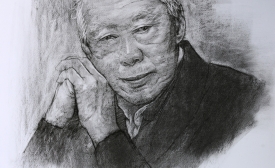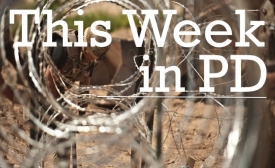middle east
And so it came, after years of protracted negotiations, extended deadlines and a diplomatic dance of unprecedented proportions – a deal that could signal a new era for Iran’s relations with the world. (...) Beyond the technical details of the agreement lies a triumph of diplomacy and the potential, if not for a realignment of US interests in the Middle East, then certainly a significant adjustment which has concerned its traditional allies in the region.
The world’s top oil exporter is abandoning its traditional preference for soft-power diplomacy, a shift that gathered pace after the Arab Spring. Analysts see vulnerability behind the show of strength: Saudis are concerned that the U.S., their historic protector, has different priorities now, as it negotiates with Iran and talks about pivoting to Asia.
Much of the Western news coverage of the death of Lee Kuan Yew has been characterized by grudging admiration for the rise of Singapore and tut-tutting about Lee’s autocratic style. The subtext is that anyone who fails to embrace Jeffersonian democracy as the ideal political system is unworthy of praise.

Lessons from the late Prime Minister of Singapore.
It is also perhaps a demonstration of Obama’s very challenging efforts to establish an “equilibrium” between Shia and Sunni forces throughout the Middle East region, especially in the Gulf. Obama explicitly made such equilibrium a strategic aim in the region in his famous interview with The New Yorker’s David Remnick 14 months ago.

Security concerns between states can hinder effective public diplomacy.
With a massive invasion by U.S. ground troops ruled out — for now — the debate in Washington over what to do about Islamic State militants has shifted into the realm of diplomacy and “soft power.”
In a move aimed at easing Western sanctions and its economic isolation, along with promoting higher education development and regional cooperation, Iran is continuing to establish more branch campuses of its universities across the Arab states.







